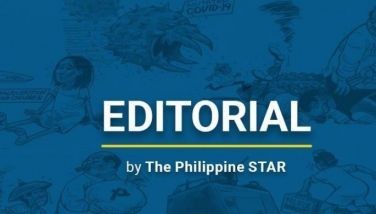Citizen journalism - boon or bane?

Some people might be fazed by the ferocity of the present presidential campaign but it has an upside. It means that a discussion is taking place to educate our voters. Thanks to Internet and cell phones it is widespread.
But it is still true that unless your cause or advocacy is worthy, there will be few takers. The speed and range for communicating a cause through the networks of Internet enable the ordinary man or woman in the street to compete or complement mainstream media. Through the Internet media has been democratized.
* * *
Many young Filipinos are computer savvy. This afternoon a group will come to interview me with their own video camera and spread it through the Internet. My column “A Clincher” was shared in Facebook by over one thousand readers, 250 postings and a million hits for The STAR worldwide. Some US newspapers are preparing for the day when mainstream media will have to accommodate the new types of journalism arising from Internet.
There’s citizen journalism when individuals themselves collect, report, analyze and disseminate news and information. Shayne Bowman and Chris Willis write in We Media that citizens’ journalism is “to provide independent, reliable, accurate, wide-ranging and relevant information that a democracy requires.”
Trying to work out a more acceptable citizen journalism, some journalists have come up with a different genre that they call hybrid journalism where professionals and ordinary citizens work together to overcome barriers to disseminating news. Now the rich and powerful do not have the monopoly of news or opinion through their newspapers or television. Media is being democratized so fast that even the venerable New York Times is under threat. The NowPublic blogsite, not even a year old has thousands of contributors competing with the reporting capacity of mainstream media.
Others are more cautious. They say a citizen journalist gives the evidence of a story but not a story. It is the account of a witness.
* * *
I read an article “The maturation of Philippine democracy” by Prof. Alfredo S. Sureta, Executive Director of StratPOLLS, Inc. More people should read it. He says “for Philippine democracy to thrive, it needs more public opinion organizations to guide the voting public.” He is a professor of Political Science at the University of the East. He answers questions posed by Senator Gordon and many others on the two polling firms. The two have been accused of using their surveys for “trending” in the run-up to May 10. He writes on the interlocking directorship within two polling firms.
Some of the prominent members of the board and stockholders of Pulse Asia are Antonio O. Cojuangco and Rafael Cojuangco Lopa, blood relatives of Sen. Benigno “Noynoy” Aquino III, official candidate for president of the Liberal Party.
* * *
I would like to clarify some points. For those who were not yet born or interested in the politics of the early ’70s I wrote the Untold Story of Imelda Marcos at great peril and risk to my family because as a journalist that was the right thing to do when her hidden life story fell on my lap. The first part of my exile was necessary because the Marcoses were after me when martial law was declared.
The second part was voluntary when staying in exile was a protest against martial law. She later sent emissaries to ask us to return but we refused. In London, where my family and I lived, my late husband, former Ambassador Alberto A. Pedrosa and I were directors for Europe of the Ninoy Aquino Movement International. We worked hard for the return of democracy, meeting with Filipinos almost weekly under the banner of the Confederation of Filipinos Overseas Organizations. Unlike Filipinos in America, Filipinos in Europe were apolitical unless we could convince them that life would be better in a democratic society.
It is not true that I have not written anything good about President Cory Aquino. We need only look at newspaper archives. I have kept clippings of those articles. During the February peaceful revolution my late husband and I were in as many television programs as we could to explain what was happening in the Philippines.
Mrs. Aquino and I had political differences about Charter change but we met at a party given by Metrobank’s George Ty at house and we shook hands. She sealed our friendship with words I cannot forget. I repeat it now to those who should learn from her. She said “We may differ but we can be friends.”
I am not a pakawala of any politician or presidential candidate. I joined the press conference of the Citizens for Right of Information (CFRI) led by Manuel Lino Faelnar because it had a good cause. It is a step forward if voters want to know about the capacity or quality of those who have presented themselves as candidates for the highest post of the land. It raises awareness that is crucial if democracy is to survive instead of just complaining about ignorant masa.
In a statement I made at the press conference I said that although I had the telephone number of Dr. Steve Agular’s son I did not call him but asked a mutual friend first if this was all right. The mutual friend called him instead. His answer was that his father was very correct about patient-doctor confidentiality. The same is true with Mrs. Agular. She cannot be faulted for being loyal to her husband and I respect that.
- Latest
- Trending



























